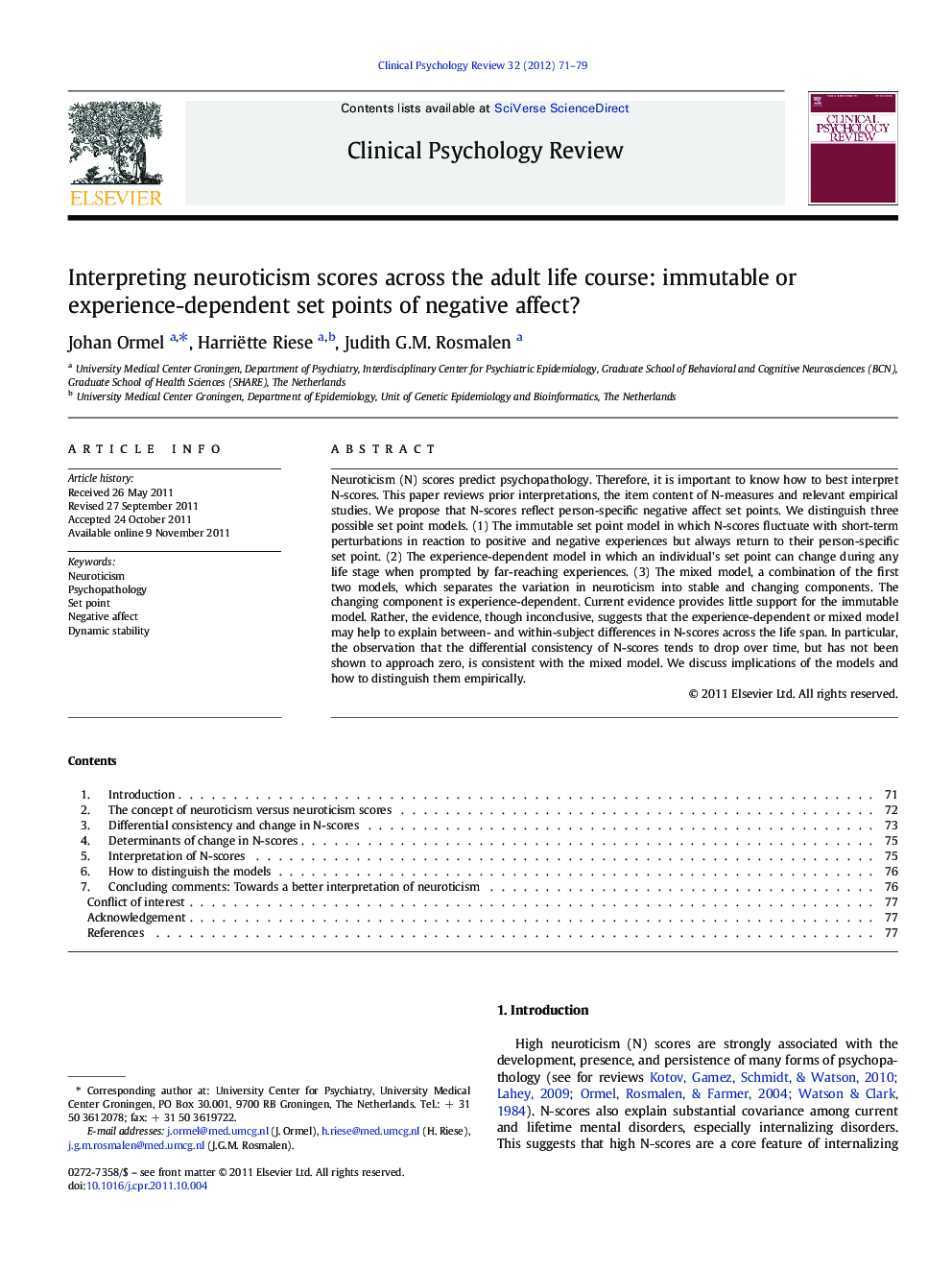| Article ID | Journal | Published Year | Pages | File Type |
|---|---|---|---|---|
| 903759 | Clinical Psychology Review | 2012 | 9 Pages |
Neuroticism (N) scores predict psychopathology. Therefore, it is important to know how to best interpret N-scores. This paper reviews prior interpretations, the item content of N-measures and relevant empirical studies. We propose that N-scores reflect person-specific negative affect set points. We distinguish three possible set point models. (1) The immutable set point model in which N-scores fluctuate with short-term perturbations in reaction to positive and negative experiences but always return to their person-specific set point. (2) The experience-dependent model in which an individual's set point can change during any life stage when prompted by far-reaching experiences. (3) The mixed model, a combination of the first two models, which separates the variation in neuroticism into stable and changing components. The changing component is experience-dependent. Current evidence provides little support for the immutable model. Rather, the evidence, though inconclusive, suggests that the experience-dependent or mixed model may help to explain between- and within-subject differences in N-scores across the life span. In particular, the observation that the differential consistency of N-scores tends to drop over time, but has not been shown to approach zero, is consistent with the mixed model. We discuss implications of the models and how to distinguish them empirically.
► A correct interpretation of N-scores is crucial for understanding the link with psychopathology. ► N-scores reflect person-specific negative affect set points. ► The evidence is inconsistent with immutable and experience-dependent set point models. ► The mixed model ‘explains’ the longitudinal pattern of test–retest correlations. ► Changes in N usually reflect fluctuations around set points but in the long run set points do change.
